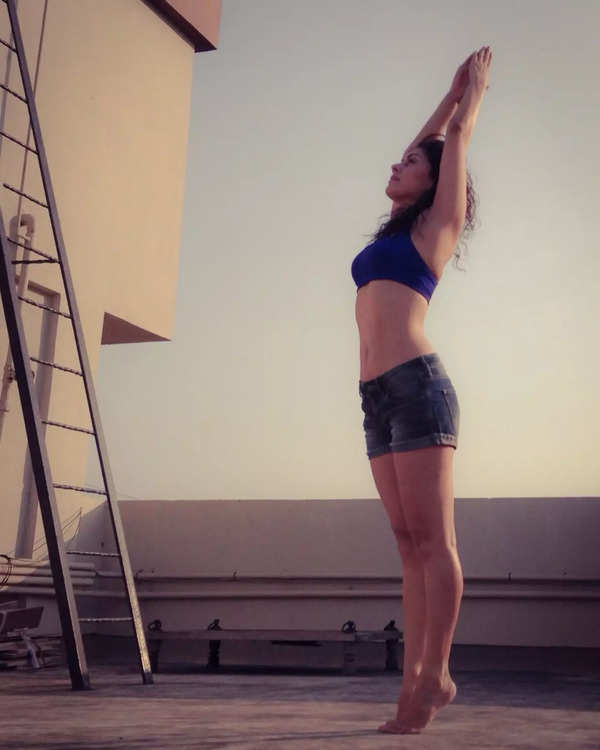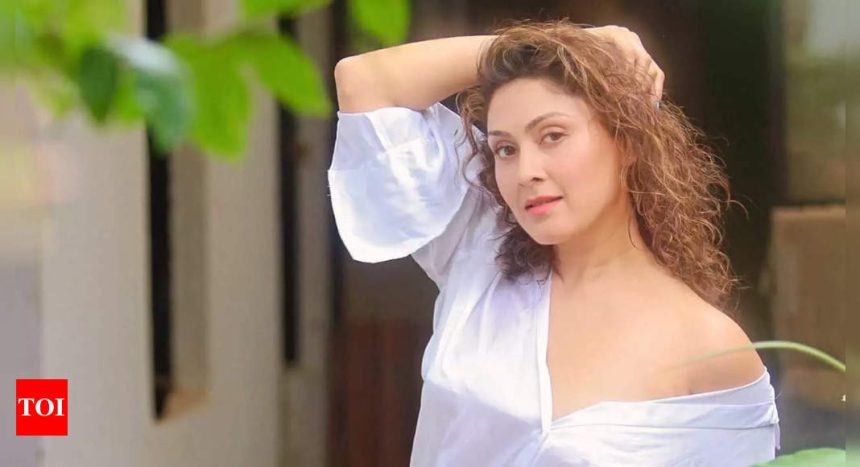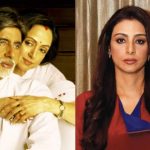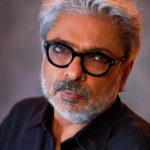In an exclusive conversation with ETimes, Manjari candidly spoke about her latest releases, including Chalti Rahe Zindagi and The UP Files.She also opened up about the challenges she’s faced, unfair treatment in the industry, her daily routine, and much more.
Chalti Rahe Zindagi has been receiving positive reviews from critics. How do you feel about it, and what was your experience playing the character?
This is my second film with director Aarti Bagri, and I genuinely admire the kind of scripts she works on. Every film she writes or directs is so life-affirming and positive, which made me very excited about this project. We shot this film during the peak of the COVID-19 lockdown. Initially, the film’s story involved only the director, the DOP Dharam, and the two actors, Indranil and Barkha, who were in the same society and had decided to make the film during the lockdown.
For the second story, Aarti brought me on board once the lockdown restrictions eased. It was thrilling to return to a set, even though the crew was just around ten people and the atmosphere was quite cautious. I was particularly excited because I was playing a Kathak dance teacher, a role that allowed me to indulge in my love for dance. The role was beautifully written, and working with Seema Bishwas ma’am added to my excitement.
The positive reactions and reviews we’re receiving are incredibly fulfilling. We’ve spent a couple of years trying to release the film, during which we took it to several festivals. It received a Special Jury Mention at the DC South Asian Film Festival, and it was also featured at the Chicago South Asian Film Festival, UK Asian Film Festival, and several festivals in India, including Dairama, Jaipur, and Khajuraho International Film Festival. It’s heartening to see our work appreciated, and I’m thrilled that we can now share it with a wider audience in India.
You mentioned you were excited to work with Seema Biswas. What did you learn from her?
I had a wonderful experience working with Seema Biswas ma’am. For the first time, you’ll see her in a comedic role, which is quite special. Her character has severe OCD, exacerbated by the pandemic. During the lockdown, many people developed OCD-like symptoms, with heightened paranoia over cleanliness and other minor issues. Seema ma’am’s character is already undergoing psychiatric treatment for OCD, and the pandemic intensifies her paranoia. The dynamic between her character and mine—where my character is the sole caretaker for her family—adds an interesting layer to the story.
In my story, I play a widow who looks after her mother-in-law and young daughter while managing my dance classes online. Despite the seriousness of Seema ma’am’s role, she infused it with so many nuances and elements of comedy, making her character multidimensional and vibrant. Watching her perform was truly a pleasure.
Due to time constraints and limited permissions during the shoot, I didn’t have the opportunity for lengthy conversations with her. I would have loved to hear more about her experiences and the story behind Bandit Queen. I hope to have the chance to spend more time with her in the future to discuss her craft and journey in greater detail. During the shoot, we focused mainly on our performances and our characters.
Your character in the film is a caretaker. How do you relate to your character in real life?
In my life, I often feel like the pampered one. When I visit my parents’ home in Pune, my mom continues to pamper me. Even when my parents come to stay with me, they still treat me with the same care. Essentially, everyone around me indulges me.
Aside from this, I also have a nurturing side. I take care of animals, and my home is filled with plants and pets, including stray animals I look after. So, while I admit to being pampered, I also find fulfillment in caring for the animals around me.
Moving on to The UP Files, where you play an inspector for the first time. How was that experience, and did you find it powerful?
Yes, it was my first time wearing a police uniform, and it was a powerful experience. I believe that the outfit, especially a uniform, really influences your performance. The body language and intensity that come with wearing it made playing that character truly enjoyable. Plus, getting to beat up a lot of people was a fun bonus.
In real life, though, I’m a very non-violent person. The only times I’ve been involved in action sequences were in The UP Files and a Telugu film directed by K. Vishwanath, where I played a black belt and had to perform a fight scene. That was quite satisfying.
Action sequences are always challenging and sometimes dangerous. I remember one scene where I had to fall on gravel after being shot. The action director warned me to keep my neck up to avoid hitting my head. Despite the instructions, my natural reaction was to let my head fall back, and I ended up hurting my skull. I heard the sound and kept acting, hoping no one would notice or make me redo the scene. Fortunately, the shot was approved, and I didn’t have to go through that again.
So, while action scenes are tough, they’re also a lot of fun.
How was your experience with Manoj Joshi?
My experience working with Manoj Joshi has been incredibly rewarding. He’s an exceptionally seasoned actor and a supportive colleague. As someone with immense experience in the industry, his presence was both inspiring and reassuring.
How do you respond to people labeling The UP Files as propaganda?
Our film is a political drama inspired by real-life events. In the current climate, where discussions often center around accusations of propaganda, it’s essential to clarify that the stories we’ve depicted are based on publicly available information. The narrative is crafted to reflect real-life situations, though I prefer not to delve into specific critiques.
From an actor’s perspective, I was thrilled to embrace a role I had longed to play—a cop. This character allowed me to explore new dimensions, including a significant monologue where my character, a reinstated officer overseeing women and children’s welfare, addresses the Chief Minister. In this monologue, I advocate for serious reforms and stringent punishment for crimes against women and children. It was a challenging and crucial piece of dialogue, and performing it was both an honor and a challenge I eagerly anticipated.
How do you prepare for your roles, and do you take inspiration from real-life characters?
I find a lot of joy in my work, and for every character I portray, I treat it as a personal form of entertainment. When I receive a script, whether or not it includes a detailed backstory, I create a mini-biography for the character. I envision her life from birth, including her family background, dreams, interests, and emotional milestones. This helps me understand her reactions and motivations better. For instance, if a scene involves an emotional trigger, I think about what might have caused that trigger in her past to help me connect with the emotion during performance.
I also focus on body language and voice, tailoring these elements to the character’s stage in life and confidence level. While this detailed preparation may not be visible on screen, it’s crucial for me as an actor, and I thoroughly enjoy the process.
Regarding real-life inspiration, I sometimes draw from real-life characters if the role calls for it. For example, in Barot House, which is based on a true story, I did some research to understand the events that inspired the film. However, a lot of my performance comes from imagination and empathy. I try to put myself in the character’s shoes and feel what they might be experiencing. For biopics, I delve deeper into research, studying the person’s life and body language. In other cases, like when I played a cop, I researched Indian female police officers to find inspiration and understand their experiences.
Speaking of biopics, are there any real-life figures you would love to portray?
Every actor dreams of portraying a person who has left a significant mark and been widely admired. For me, playing well-written, well-crafted biographical roles is a dream. There are a few remarkable women whose stories I deeply admire and would love to portray.
Firstly, Madhubala, an iconic figure beloved by many. I would be honored to bring her story to life if given the opportunity. Maharani Gayatri Devi is another extraordinary woman whose elegance and grace I greatly admire. Portraying her would be a dream come true.
Additionally, I am fascinated by Noor-e-Naz Khan, a remarkable figure I learned about from the book Spy Princess. She was a half-Indian, half-American who worked as a spy for the Allied forces during World War II, despite her personal aversion to lying. Her contributions were significant, and playing her would be an incredible privilege.
These roles are ones I would eagerly embrace, as they offer a chance to bring truly inspiring stories to the screen.
Recently, you had a reunion with your old cast members of Jaane Tu… Ya Jaane Na. How was that?
I absolutely love working with this team; they are among my favorite collaborators. Although we haven’t had a full physical reunion recently, the last time we all gathered was to celebrate the 10th anniversary of Aamir Khan Productions.
Since then, I’ve had the chance to catch up with some of them individually. I met Nirav, who now lives in LA, when he visited India this May, and I also saw him in London. I bumped into Aamir at his daughter Ira Khan’s reception and caught up with Imran there as well. However, I haven’t had the opportunity to see everyone together as a group.
Recently, I received a call from the Aamir Khan Productions team asking me to record a song for a reunion project they were organizing. I was thrilled to contribute and excited about the prospect of seeing everyone together again. It was a beautiful experience, and the outpouring of love and support from everyone was overwhelming.
Did you discuss the possibility of a sequel or a follow-up to the project?
I’m not sure if it will happen, as there hasn’t been a strong demand from the audience for a re-release. I hope it does come to fruition soon, but honestly, I don’t know if it will.
Did you talk to Shreyas when he had his health scare?
I remember meeting him and feeling an immediate connection. I’m very close to him and Dipti, so we’ve stayed in touch. At that time, we had already completed half of Zindagi Namkeen. We had another schedule planned for January, which got postponed, but we wrapped up the remaining shoot in April. I continued working with him after that, and he’s doing well now. He’s taking good care of himself and seems to be stronger. I’m confident he’ll be fine.
Any tips on maintaining health

I believe people should take care of themselves by focusing on some basic principles. First and foremost, “you are what you eat,” so consuming a balanced diet is a crucial gift to your health.
Mentally, it’s just as important to prioritize self-care. For instance, in my character’s life, she’s always caring for others but neglects her own well-being. It’s essential to remember that taking care of yourself is just as important as taking care of those around you.
There’s a saying that you should “help yourself before helping others,” and I truly believe in that. When you’re fulfilled and doing what you love, you’re in a better position to share that happiness with others. It’s not selfish to prioritize your own well-being; in fact, it’s necessary. If you’re not happy and healthy, it’s challenging to bring joy to those around you. Taking care of yourself first ensures that you can offer your best to others.
How is your daily routine?
My daily routine typically starts with feeding all the animals in my house. After that, I have breakfast and do a bit of workout. On days when I’m not shooting, my routine is quite flexible. After my workout, I get ready and either attend meetings or stay home. At home, I might spend time singing and practicing, learning a new song, watching a series, or reading a book.
I make it a point to read at least 2-3 pages of a book before bed. When I’m shooting, my routine changes significantly, with early mornings and a focus on the shoot schedule. But on non-shooting days, I enjoy having a variety of activities to fill my time.
Are you happy with your journey so far, or do you feel there’s something missing or that you need to achieve?
While I’m grateful for the good work and amazing people I’ve met along the way, I feel there’s still a lot more I want to achieve. I aspire to reach a larger audience, collaborate with some of the best directors in the country, and take on international projects to make India proud. There’s so much more I want to do, and I’m actively working towards it.
I don’t think an actor can ever be truly satisfied. There’s always a desire to push boundaries and explore new horizons. For a long time, I felt constrained by getting similar roles, but with the rise of OTT platforms, I’ve had the chance to experiment with different kinds of characters. Nonetheless, I’m eager for even greater changes and opportunities in my career. I’m happy with where I am, but I definitely aim for more significant milestones ahead.
Do you feel there are any hurdles or challenges in your journey that you want to overcome?
There have been many hurdles along the way. The field is incredibly tough, especially when you don’t come from a film background. When I first entered the industry, I didn’t know anyone, not even in Mumbai.
Securing my first film was relatively smooth, but after that, every subsequent project has been a struggle. It’s been a long and challenging journey, navigating through the industry without established connections.
If you could go back in time, what would you change about yourself or your journey?
Looking back, I feel I entered the industry quite young, almost like a child in my mindset. I sometimes think I might have benefited from waiting a few more years before diving into this field. However, I don’t regret it. If I had to change anything, it might be to come in a little later, maybe five years down the line.
But I believe everyone has their own unique journey, and things happen at the right time. I came in early to learn important lessons and to grow, and I feel I have, and am still, growing. Each person’s journey is special and different, and I value mine for all that it has taught me.
Have you ever faced situations where you were replaced by another actor or encountered other challenges?
Yes, I’ve encountered situations where I was excited about a film and role, only to be replaced unfairly. Interestingly, those films didn’t perform well at the box office, which felt like a bit of divine intervention. At the time, I was disappointed, but once the film was released, I felt a sense of relief.
I prefer not to name names, as I want to maintain positive relationships within the industry and avoid offending anyone.
How would you like to be remembered?
I would like to be remembered as someone who brought magic to the screen and touched people’s hearts. I hope to be remembered as someone who made people feel emotions and smile whenever they saw me on screen. In real life, I want to be remembered as someone who left others with a positive feeling after meeting me. It’s important to me that people remember me for the joy and warmth I brought into their lives.












